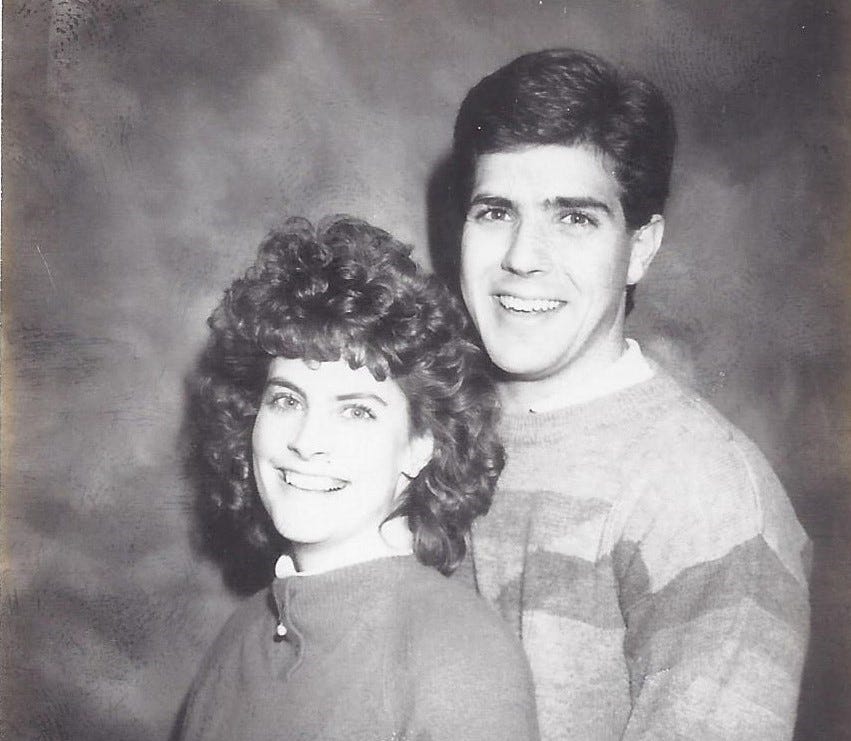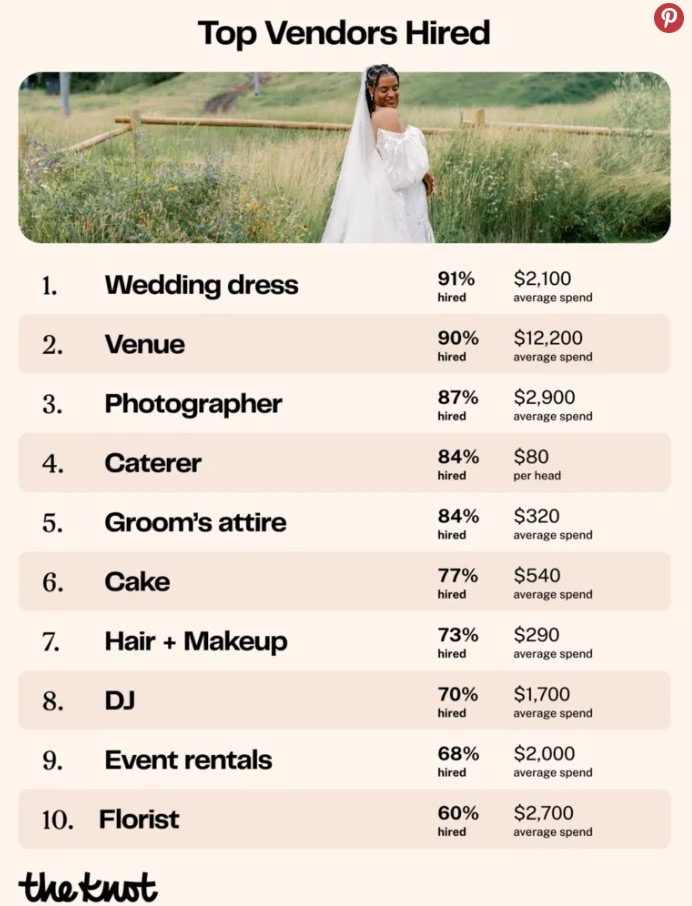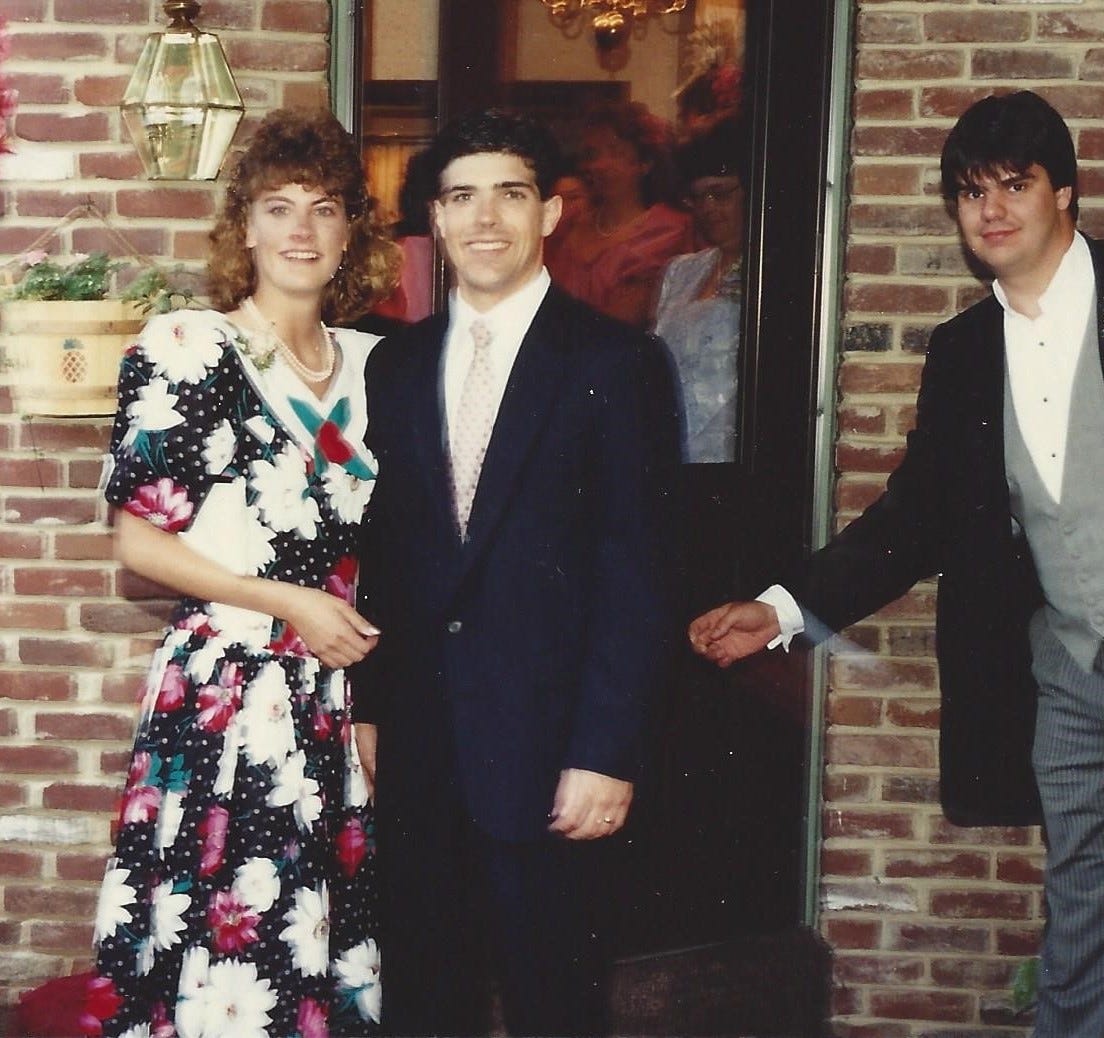5 reasons why wedding planning isn't as much fun as you think it will be
And how to survive it anyway

When my boyfriend suggested a trip to a park where we’d gone on picnics on the third anniversary of our first date, you would think I would have been suspicious. The idea wouldn’t have been so weird in the middle of the summer, but it was an odd destination to suggest for a November evening. I figured all of the family togetherness associated with both of us living at home again was getting to him.
The park was as dark and desolate as you would expect on a late fall evening. So he reversed course and suggested that we go for a walk on Villanova’s campus instead. I must have been under some kind of spell because I went along with all of this maneuvering without wondering whether anything was up.
As you must have guessed by now, the boy was up to something–he proposed.
Once he slipped that engagement ring on my finger, I expected it to be all fun and games. We wouldn’t even have to worry about reserving a wedding date because we’d already booked the church and the reception venue. The only task on the to-do list was spreading the good news, and it seemed like we’d be surfing a wave of goodwill for the next 18 months.
With good tidings pouring in left and right, it made something my father-in-law told my husband when we shared the good news hard to believe: He said he certainly hoped that we enjoyed our engagement, but that in his experience, most couples didn’t find the whole process of planning a wedding fun.
It wasn’t long before we both realized my father-in-law was right.
How can this be? Why is there inevitably tension around planning what’s supposed to be the happiest occasion of your life? I can think of at least five reasons why planning a wedding isn’t as much fun as you think it will be, and I thought I’d spill them here.
Though there’s no way to get around these realities, sometimes understanding the factors at play makes it easier to navigate through them. And since I don’t like leaving you stranded with bad news, I’ll also suggest some antidotes that might provide some relief.

Reason #1: A wedding is likely the largest event you’ll ever organize, and the logistics of party planning are a pain
Many of us have an idealized image of what our wedding will be like in our heads. After all, if you’re going to dream, why not imagine the most fabulous, perfect day of your life? And every vendor looking to gain your wedding business will stoke those visions of sugarplums–everything on their websites and social media looks gorgeous.
But working out the details of your wedding isn’t as pretty. I had a preview of this reality when we started looking at reception halls for my wedding, though I’d tried to ignore it. When my mom discounted one of the venues I liked because the chopped-up room configuration would mean that one wing of the family would be separated from another, I wrote it off to her overthinking things. After all, we weren’t the State Department planning a White House dinner.
Practical considerations like my mom was bringing up were a pain. Believing that our wedding day was purely about celebrating our love was much more romantic.
But as we got deeper into the logistics, I saw that my mom was identifying legitimate issues. Planning a wedding wasn’t the joyride I wanted it to be.
A wedding is a high-stakes event–it’s a once-in-a-lifetime celebration that you want to be meaningful. Planning something like that is sure to be more stressful than organizing an ordinary backyard barbecue.
Dealing with all the details of a momentous event you’re trying hard to make memorable will always be stressful. According to a survey by The Knot, most couples begin making plans 12 months before their wedding and spend an average of six hours a week reviewing, organizing, and finalizing details. On average, the couple themselves do 80% of the planning. That’s a lot of work!
Antidotes to wedding logistics pain
(1) Recognize and acknowledge that at its core, a wedding is an event that will require more logistical planning and coordination than you have previously done in your life. Forewarned is forearmed. Acknowledge that this will be a significant project for the next X months, and identify how you will accommodate it.
Remember that no one is required to have a lavish and/or complicated wedding; what’s needed for the marriage to be valid is remarkably simple. Begin by focusing on the basics, and layer on complications only as you are able to tolerate them.
(2) This may be the first time in your life that decisions about a significant life event are not entirely your own–you and your partner will have to navigate differences in opinion and compromise when necessary. You can either fight or embrace this reality.
In a way, planning a wedding can be like a training camp for marriage. Be gentle with yourselves and recognize that you are in the midst of a learning process. It can be a worthwhile exercise that will help prepare you for the many joint decisions and projects that lie ahead for you and your soon-to-be spouse.

Reason #2: Several people may have a seat at the banquet table when it comes to making decisions about your wedding, and managing multiple sets of expectations can be difficult
A wedding is not only a very big day for the happy couple, but also for both sets of parents. From the get-go, you can have six (or more) sets of expectations with a seat at the banquet table.
When I got married, our families came from similar socioeconomic and cultural backgrounds, so we all were on the same basic page about what a wedding entailed. I can only imagine how complicated this can get when this isn’t the case.
If either family contributes funds to pay for the wedding, this ratchets up the potential for conflict. Very few people helping to pay for something are without opinions about how the money should be spent. The temptation to influence decisions is always present. And even if someone tries to be good and stay on the sidelines, it’s unrealistic to think they won’t say anything about things that mean something to them.
And then, to make it even more stressful, there may be a circle of people just beyond your parents–people who shouldn’t even necessarily have a say—who may have ideas about what your wedding should look like. For instance, my mother got an earful from my grandmother because we weren’t inviting all the distant cousins she thought should be on the guest list.
You may even have an additional layer of potential complications, like non-traditional family configurations or sticky family feuds to contend with too. See why planning a wedding isn’t always fun?
Antidote to multiple sets of expectations
While we all wish there were a way to stifle any sort of family interference, that’s simply impossible. By its very nature, a wedding joins two families together. It’s best to accept this reality and consider planning your wedding a dress rehearsal for how you, as a couple, will manage family relations and navigate life as a unit.
You will have all kinds of occasions during your life together in which you will have to set boundaries while considering the feelings of parents and other family members. Think of planning your wedding as a hands-on course in diplomacy. You might as well figure out how to do that now while you have the goodwill associated with being the “happy couple” on your side.
Reason #3: Weddings typically come with a hefty price tag, and it’s not fun to wrestle over how much to spend and how you’re going to pay for it
A wedding often involves a series of big-ticket purchases that will almost certainly require deliberation, budgeting, and negotiation. It may also bring to light differences in money philosophy between you and your partner. You can see why wedding planning has the potential to be a buzzkill on this front, right?
According to The New York Times, the national average wedding expense rose to over $30,000 in 2024. The Knot says that, on average, couples hire 14 vendors to pull off their wedding. That’s a lot of decision-making, management, and money. You and your partner are guaranteed to get some practice navigating money issues as you plan your wedding.
One of the issues is, of course, paying for it all. According to a 2024 U.S. News and World Report survey, 56% of newlyweds took on debt to pay for their wedding, relying on credit cards, bank loans, family loans, or a combination. Among those who borrowed money, 48% say they weren't expecting to go into debt when they initially began planning their wedding.
Nearly a third (31%) regret how much they spent on their wedding. The most common reason newlyweds experience regret is spending more than originally planned (35%), followed by starting their married life worried about debt (27%). About one in five regretful newlyweds (20%) say they were overcharged for services, and one in seven (14%) say their wedding wasn't as fun as expected.
Antidotes to stress about wedding costs
(1) Keep this cardinal rule in mind: An expensive wedding isn’t required in order to have a happy marriage. Budget for the wedding you can afford.
(2) Remember that a wedding can be like a pre-marriage training camp. You might not enjoy the exercise, but since you’re joining yourself with this person for life, it will only be the first of many times you will have to hash out your priorities and what you’re both comfortable spending.

Reason #4: Nobody likes to feel that an event focused on celebrating their love may not measure up to other people’s weddings
It’s relatively easy to get sucked into believing that certain things will contribute to how happy you will be on your wedding day, even if these items are minor and relatively meaningless details.
When I was the bride, I became fixated on napkins and wedding favors. Once I picked mauve as my theme color, sprinkling it throughout the wedding seemed essential. Hence, the availability of mauve napkins was a key criterion when we evaluated reception venues. If I think about it today, I can’t remember what color the napkins were at a single one of my friends’ weddings, but at the time, I thought having mauve napkins was critical.
Similarly, I got a little hung up over our wedding favors, which also ended up being time poorly spent. I landed on matchbooks that doubled as place cards. The fact that they could do double duty appealed to my practical side. I suppose I could also make the case that the matchbooks symbolized our burning love, but now I think they’re tacky.
In any case, neither the napkins for the wedding favors had any bearing on how much we or our guests enjoyed our wedding day. And we had so many extra matchbooks that I still have a stash of them 35 years later. (DM me if you need matches.)
Thanks to social media, I can only imagine how much more vulnerable people are to comparing their wedding to other people’s weddings these days. Don’t fall for it!
Trying to keep up with the Joneses has always been a fruitless and exhausting endeavor, and it can make it more challenging to decide what you truly want because you are at greater risk of being influenced by other people. Remember–comparison is the thief of joy.
Antidotes to Comparison-itis
(1) All the wedding coverage in your social media feed isn’t doing you any favors. Limit your social media intake. If you find yourself making decisions about your wedding based on how something will look in a social feed, recognize that you are in dangerous territory.
(2) Instead of obsessing about minor details, focus on what’s meaningful in the grand scheme of things. For instance, that time I spent obsessing about napkins and favors would have been better spent shopping with my mom for her mother-of-the-bride dress. (It truly did not occur to me that my mother would appreciate my company as she made the rounds of stores looking for the perfect dress for my big day. I was even oblivious to the hints that she dropped.) Hands down, hitting the dress salons with my mom sure would have been far more meaningful than worrying about napkins and favors.
(3) If you find yourself hung up about whether you’ll have the best fill-in-the-blank, it’s likely a sign that you need to take a beat.
Reason #5: You may be trying to find deeper satisfaction than there’s meant to be in planning what is, in the end, a single day of your life
It’s all too easy to get sucked into believing the falsehood that one can achieve nirvana if they try hard enough to plan the most perfect wedding day of all time.
Consider the big picture–a wedding is an event that lasts a day, or at most a weekend, if you count all the ancillary activities associated with it.
On the other hand, a marriage is something meant to last a lifetime. You’re more likely to derive satisfaction from investing effort in preparing for your lifelong partnership. There’s no way the payoff from a single event can measure up to that.
Antidote to putting too much emphasis on a single day
That marriage prep class your church offers/requires may be more worthwhile than you think. And even if no one requires you to take a prep class, it’s worth exploring. For instance, check out the Pre-Marriage Course, which can be completed in person or online. Over 1.5 million couples have completed the five-session course, which relationship experts designed to help couples learn to communicate well, understand and appreciate their differences, and prepare for potential challenges.
If you think about it, there’s usually some kind of formal training for most major responsibilities we take on in life. Investing effort into setting a firm foundation for your married life seems guaranteed to pay greater dividends than any daylong celebration ever could.
If you’re currently planning a wedding, I wish you Godspeed. And if you’re wondering about the realities of life after the wedding limo pulls away, check out the post Marriage won’t be much of an adjustment, right?
Writing this piece has made me remember some additional advice I’d like to share about the wedding day itself, but I’ll save my “Wedding Confidential Confessions” for another time. Stay tuned.




Good timing, Joanna. My daughter’s wedding is 4 months away. Your advice is great—I’ll pass it on and take it to heart myself!